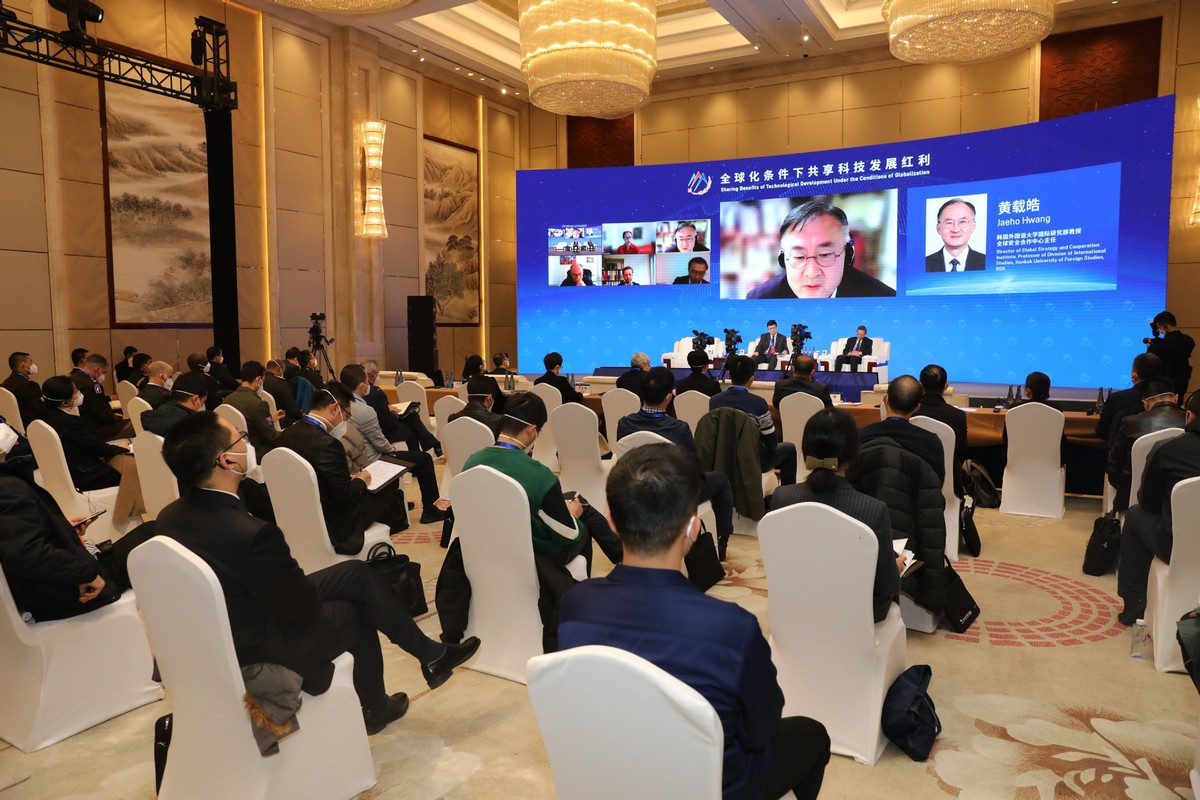
By JIANG CHENGLONG
Experts call for multilateralism, mutual understanding at Xiangshan webinar
Experts have called on the United States and China to enhance crisis management and prevent differences from evolving into conflicts, especially over the Taiwan question.
They also stressed the significance of multilateralism, mutual understanding and benefit in Asia Pacific as the region faces the risk of further diplomatic polarization.
The remarks were made at the Beijing Xiangshan Forum Webinar held from Thursday to Friday, during which 42 experts from 14 countries and an international organization discussed six major topics related to global cooperation and security.
Michael Swaine, director of the East Asia Program at the Quincy Institute for Responsible Statecraft in Washington DC, said security in the Asia Pacific and peaceful development are now facing stronger threats because of negative interaction between China and the US.
He said there are differences on the Taiwan question between the two countries, but the US should uphold the one-China policy and adjust some of its strategies to prevent conflict in this area.
The US should limit its ties with the island and reduce navigation activities in the South China Sea, said Swaine, noting that the first step needs to be "genuine dialogue" between China and the US, with support from other countries in the region on a range of different issues.
US House Speaker Nancy Pelosi's Taiwan visit has further reduced communications between China and the US, so we need to better strengthen crisis management, he said, adding that at the same time, there should be more exchange between the Chinese and US militaries, making Sino-US relations more resilient.
Moon Chung-in, chairman of the Sejong Institute in the Republic of Korea, said the US has been implementing its "Indo-Pacific" strategy to contain China and decoupling with China economically, which has left the ROK with a dilemma.
"China is our biggest trade partner so we cannot join the US in decoupling with China, but meanwhile we share similar values with the US," he said, noting that this worrying situation has resulted in serious diplomatic polarization.
Moon stressed the importance of promoting cooperation in the Asia Pacific and urged upholding of the "true multilateralism" that Beijing advocates.
"We need inclusiveness rather that exclusiveness in Asia Pacific," he said, underlining the difficulties China faces in finding ways for peaceful coexistence.
"Thus, we must return to the principles of multilateralism that Beijing has proposed," Moon said, adding that mutual respect and strategic understanding would promote harmony and common prosperity.
Zheng Yongnian, an international affairs professor at the Chinese University of Hong Kong in Shenzhen, pointed out the differences between the multilateralism that China and the US have promoted.
"The multilateralism that China has proposed is open, inclusive and does not target any third party," he said, adding that's "true multilateralism", which aims to solve problems common to all participating countries.
He used the Belt and Road Initiative and the Asian Infrastructure Investment Bank as examples of new global multilateral mechanisms that any country can join, including the US and Japan.
Zheng added that the US has been promoting multilateralism based on its values, but that it is "closed", targeting parties such as China and Russia, essentially dividing the world.
The professor emphasized the many aspects on which both China and the US can cooperate, such as nuclear nonproliferation, the public good and climate change.
Meanwhile, he warned that the two countries must consider managing their confrontations and conflicts in the South China Sea and particularly with regard to the Taiwan question, which is at the core of China's interests and leaves no room for negotiation.
Douglas Dillon Professor of Government at Harvard University, Graham Allison, who first referred to "Thucydides trap" with regard to the current China-US situation, said that China and the US need to coordinate actions and cooperation so that they can maintain international order and coexist.









